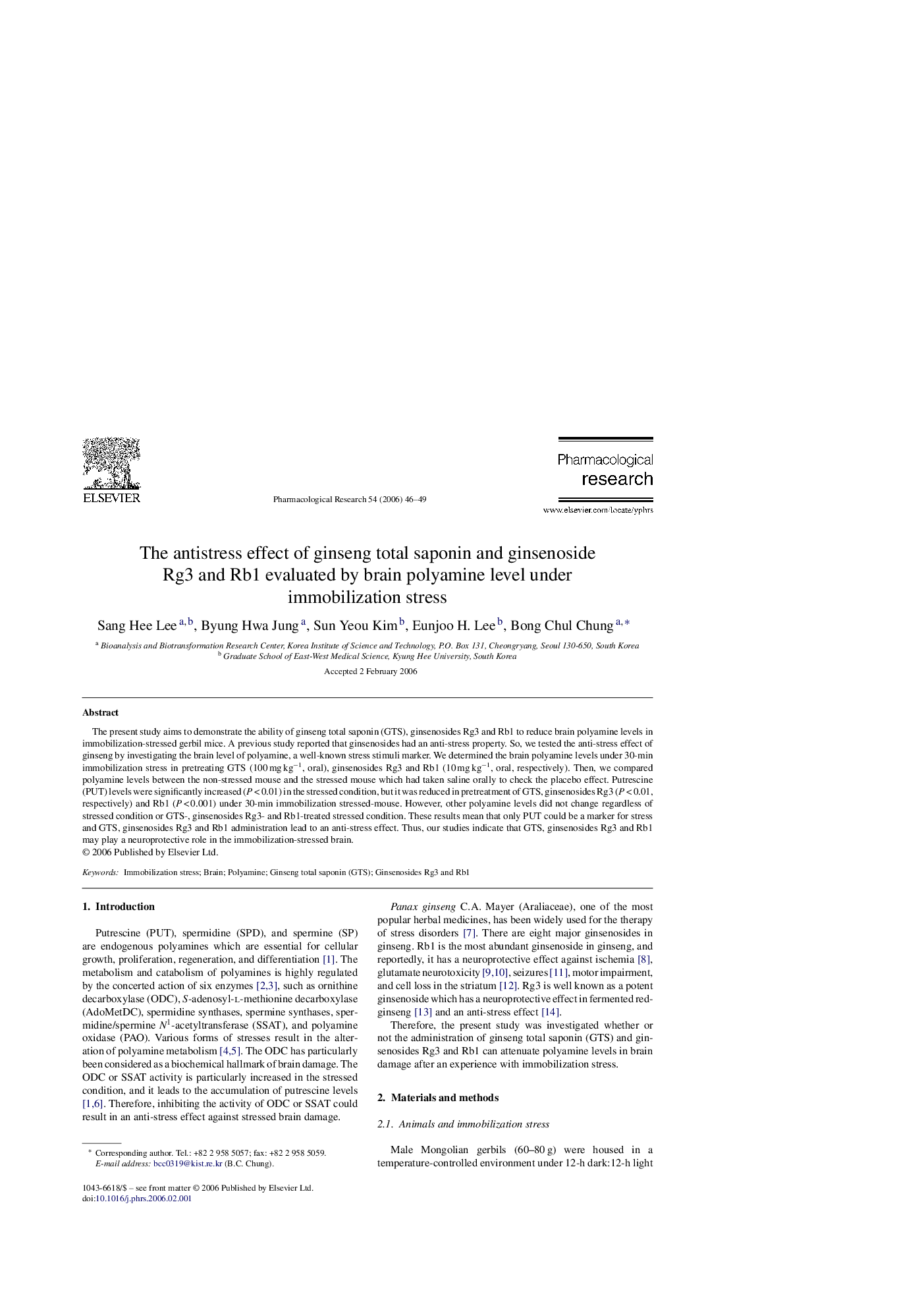| Article ID | Journal | Published Year | Pages | File Type |
|---|---|---|---|---|
| 2562558 | Pharmacological Research | 2006 | 4 Pages |
The present study aims to demonstrate the ability of ginseng total saponin (GTS), ginsenosides Rg3 and Rb1 to reduce brain polyamine levels in immobilization-stressed gerbil mice. A previous study reported that ginsenosides had an anti-stress property. So, we tested the anti-stress effect of ginseng by investigating the brain level of polyamine, a well-known stress stimuli marker. We determined the brain polyamine levels under 30-min immobilization stress in pretreating GTS (100 mg kg−1, oral), ginsenosides Rg3 and Rb1 (10 mg kg−1, oral, respectively). Then, we compared polyamine levels between the non-stressed mouse and the stressed mouse which had taken saline orally to check the placebo effect. Putrescine (PUT) levels were significantly increased (P < 0.01) in the stressed condition, but it was reduced in pretreatment of GTS, ginsenosides Rg3 (P < 0.01, respectively) and Rb1 (P < 0.001) under 30-min immobilization stressed-mouse. However, other polyamine levels did not change regardless of stressed condition or GTS-, ginsenosides Rg3- and Rb1-treated stressed condition. These results mean that only PUT could be a marker for stress and GTS, ginsenosides Rg3 and Rb1 administration lead to an anti-stress effect. Thus, our studies indicate that GTS, ginsenosides Rg3 and Rb1 may play a neuroprotective role in the immobilization-stressed brain.
